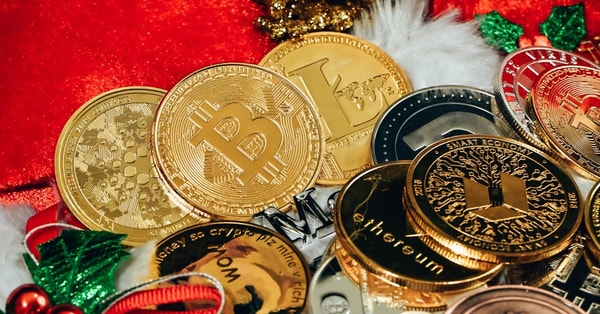How NFTs Are Revolutionizing Real Estate Investment
Ever thought you could buy property online like your favorite sneakers? Discover how NFTs are transforming real estate investment today!
Imagine buying a piece of property as easily as snagging a pair of shoes online. With non-fungible tokens (NFTs) on the scene, that dream is turning into reality in the real estate investment world. This guide dives into how NFTs are reshaping traditional property transactions, making them more efficient, transparent, and accessible than ever before.
First, let’s take a quick detour into the realm of cryptocurrency and blockchain technology. If you've heard of Bitcoin or Ethereum, you're already somewhat acquainted with the wild world of digital currency. Blockchain is the backbone here—a decentralized and transparent ledger system that boosts security and trust.
Now, here come the NFTs. Unlike cryptocurrencies that are interchangeable (think of them as your dollar bills), NFTs are unique digital assets that signify ownership of a specific item, whether it’s a piece of art or, yes, a slice of real estate. This uniqueness is what makes NFTs a game-changer for real estate investing.
Let’s break it down: NFTs are a type of digital certificate that verifies ownership of something one-of-a-kind. In real estate, this could mean a house, a commercial space, or even a plot of land. The “non-fungible” aspect means that each token is distinct; no two NFTs are alike, just as no two properties are identical.
So, what does this mean for real estate? Traditional transactions often come with heaps of paperwork, middlemen, and prolonged processes. With NFTs, ownership is directly linked to the token, streamlining everything. You might be wondering how NFTs differ from standard cryptocurrencies. While cryptos like Bitcoin act as currency, NFTs signify unique ownership and can’t be exchanged on a one-to-one basis.

Now, let’s chat about tokenization in real estate. Think of tokenization like slicing a pizza into smaller, shareable pieces. Tokenized real estate allows investors to buy fractions of a property, making it more affordable and accessible. You don’t need a massive lump sum to own a piece of premium real estate—you can own a slice of it.
Picture a high-end apartment building in New York City. Through tokenization, investors can buy tokens representing ownership shares in that property. This leads to greater liquidity (you can sell your share easily), diverse investment opportunities, and lower barriers to entry.
Curious about real-world examples? Check out platforms like RealT and Property Vault, which have successfully tokenized properties, opening the doors for everyday folks to invest in real estate that used to be the playground of the wealthy.
How does NFT property ownership actually work? When you buy a property represented as an NFT, you’re not just acquiring a digital token; you’re getting the legal rights tied to that property. But let’s not get ahead of ourselves! There are legal implications to navigate. Laws around NFT ownership are still evolving, so it’s vital to make sure your investment aligns with local regulations.
Here’s a quick step-by-step guide on how to buy and trade NFT properties:
Let’s dive a bit deeper into the tech enabling all this. Blockchain enhances transparency and security in property transactions, offering a public ledger where all transactions can be verified without needing trusted third parties. This minimizes fraud and ensures that everyone can see who owns what.
And then there are smart contracts. These are self-executing contracts with the terms of the agreement directly coded into the blockchain. They automate processes and eliminate ambiguity—imagine buying a property without drowning in paperwork or worrying about someone backing out at the last minute. Sweet, right?
Let’s celebrate some noteworthy projects harnessing the power of NFTs in real estate. One standout is the virtual real estate market in Decentraland, where users buy plots of land as NFTs. Another fascinating example is the purchase of an NFT representing a property in the US that occurred entirely on the blockchain. Industry leaders involved in these projects consistently emphasize how this technology is reshaping our perceptions of ownership.
I recently chatted with an investor who bought a tokenized property. They shared both excitement and relief over the experience—it was quick, and they felt secure knowing everything was documented on the blockchain. It’s those kinds of stories that highlight this shift in investing.

But let’s be real! Investing in NFT real estate isn’t all rainbows and sunshine. There are challenges to keep in mind. Market volatility is a genuine concern. The value of NFTs can swing wildly, and legal uncertainties persist in many areas. It’s crucial to do your homework and navigate these complexities carefully.
Here are a few tips to help you steer through these waters:
In closing, NFTs have the potential to revolutionize real estate investing. They can democratize the market, making it accessible to a wider range of investors. If we can simplify property transactions, boost transparency, and enhance liquidity, why wouldn’t we want to embrace that?
As we navigate this new frontier, it’s essential to stay informed and consider the opportunities that come with NFT property ownership. So, what do you think the future of real estate investing will look like in the digital age? Will we see full-scale adoption, or is it just a passing trend? Only time will tell, but it’s an exciting space to watch!
Tags:
Related Posts
Unlocking NFTs in Real Estate: The Future of Ownership
Curious about how NFTs are reshaping real estate? Discover the potential of digital property ownership and what it means for investors today!
Unlocking Bitcoin Success with Dollar-Cost Averaging
Ready to boost your Bitcoin game? Discover how dollar-cost averaging can turn your investments into winners, no matter the market's ups and downs.
Discovering Blockchain: A Beginner's Guide to the Future
Curious about blockchain and how it works? Join me on a simple journey to demystify this technology that's changing the world beyond cryptocurrencies.
Your Friendly Guide to Choosing a Secure Hardware Wallet
Feeling overwhelmed by hardware wallet choices? Let’s simplify it! Discover how to safeguard your crypto assets with the right storage solution.
Bouncing Back: 5 Steps to Recover from Crypto Losses
Lost money in crypto? You're not alone! Discover five practical steps to help you bounce back and regain your investing confidence.
How to Explain Cryptocurrency at Family Dinner
Not sure how to tackle the cryptocurrency convo with your family? This guide breaks it down in a way everyone can understand—without the jargon!